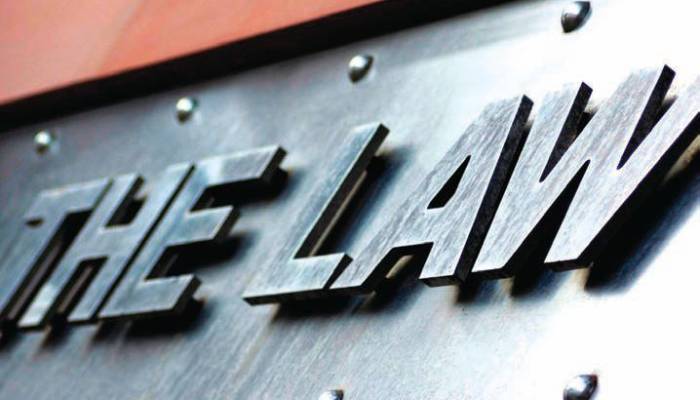
or

In order to eliminate corruption and protect witnesses, the Indian Cabinet had introduced the Whistleblowers’ Protection Bill, 2011, (hereto referred as the Bill). The Bill was passed by the LokSabha on December 27, 2011, and after remaining pending in the Rajya Sabha for nearly two years, was passed by the House as well recently.
While the timing of the Bill has raised eyebrows in lieu of the upcoming Lok Sabha polls, it is beyond doubt that the step is a welcome provision in more than one way and has been long awaited. It has, however, been felt that certain provisions of the Bill could have been looked into more carefully in order to add clarity to them.
For instance, the provisions related to the protection of a complainant and witnesses under the Bill are worth noting. Significantly, it is for the first time that such a protection has been given under a statute.
What is still not clear is whether the Bill is applicable to a private entity. The objective of the Bill and the preamble confines it to disclosures against public servant. It is evident that this was the intent when theBill was being formulated. However, the provision relating to offences by ‘companies’ does not explicitly states if they can be extended to private companies, even if such disclosures are in the public interest.
Reading the provisions of the new Companies Act together with the Whistle Blowers Protection Bill, 2011 does give a different interpretation. It seems we will have to rely on judicial pronouncements to have more clarity on the matter.
In the meantime, here is a quick glance at the key highlights of the Bill.
The Act seeks to establish a mechanism to receive complaints from any person relating to disclosure under the same, which should be made in writing or by electronic mail or electronic mail message, against the public servant and includes a public interest disclosure. Disclosure has been defined in the Act to mean a complaint relating to:-
Disclosures are to be made within 7 years maximum from the date on which the action complained against is alleged to have taken place.
Every disclosure is to be made in good faith followed by a personal declaration from the complainant stating that he/she reasonably believes that the information disclosed and allegations contained are substantially true.
No action shall be taken by the Competent Authority in such public interest disclosure does not include the identity of the complainant or public servant or if such identity is found to be incorrect. However, the Competent Authority is to maintain the confidentiality of the identity of the complainant which may be disclosed further only with the prior written consent of the complainant.
On receipt of such disclosures, the Competent Authority shall make a discreet inquiry and if it is prima facie of the opinion that disclosure needs to be investigated, it shall seek comments or explanation or report from the HOD of the organization concerned.
The complainant is to provide all documentary evidence in support of the complaint to the Competent Authority.
If nothing material comes out in the inquiry and the Competent Authority wants to close the case, an opportunity of hearing to be given to the complainant (if complainant so desires).
The Whistle Blowers Protection Bill, 2011 has been the demand of the civil society for a long time. It will indeed go a long way in reinforcing the provisions of the Right to Information Act and the Prevention of Corruption Act.
Yet, some provisions of the Bill must be relooked into when the rules are framed. Conceptually, the identity of a whistleblower is always required to be protected which in turn acts as an impetus for bringing the wrongdoing into the limelight and thus push for further investigation. Under the present Bill, however, not only the identity of the whistleblower is disclosed to the competent authority, any disclosure which is false or misleading has been made punishable for a term of 2 years, including payment of fine.
Further, in case of Public Interest Disclosure, the person making the disclosure is required to make a personal declaration regarding the truthfulness of the allegations and in the absence of such declaration, the Competent Authority may not take any action thereof.
Such provisions may act as a dampener and prevent the whistleblowers from making complaints. It is a matter of record that in most of the high profile scams, cases of corruption have come to light on the whistleblower’s initiative. They are thus important in not only ensuring prevention of fraud but also promoting good corporate governance.
Amar is National Director – Legal / General Counsel, Ernst & Young Services Pvt Ltd. This article is written by the author in his personal capacity and does not reflect an official view of the organisation he serves.

Lex Witness Bureau

Lex Witness Bureau

For over 10 years, since its inception in 2009 as a monthly, Lex Witness has become India’s most credible platform for the legal luminaries to opine, comment and share their views. more...
Connect Us:


The Grand Masters - A Corporate Counsel Legal Best Practices Summit Series
www.grandmasters.in | 8 Years & Counting
The Real Estate & Construction Legal Summit
www.rcls.in | 8 Years & Counting
The Information Technology Legal Summit
www.itlegalsummit.com | 8 Years & Counting
The Banking & Finance Legal Summit
www.bfls.in | 8 Years & Counting
The Media, Advertising and Entertainment Legal Summit
www.maels.in | 8 Years & Counting
The Pharma Legal & Compliance Summit
www.plcs.co.in | 8 Years & Counting
We at Lex Witness strategically assist firms in reaching out to the relevant audience sets through various knowledge sharing initiatives. Here are some more info decks for you to know us better.
Copyright © 2020 Lex Witness - India's 1st Magazine on Legal & Corporate Affairs Rights of Admission Reserved